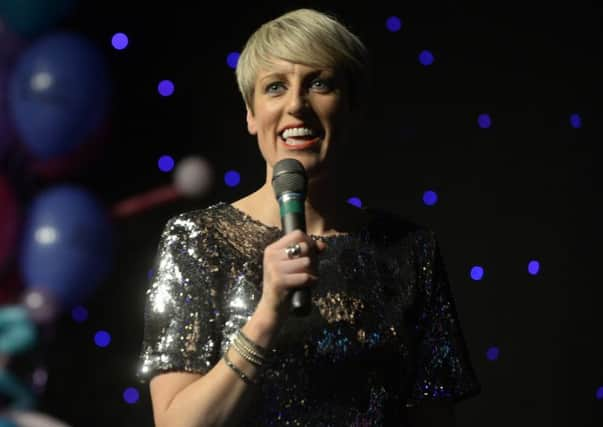Why more than a quarter of Britons feel discriminated against because of their regional accent - Anthony Clavane


Don’t worry, there will be no spoilers. Those old-school traditionalists waiting until tomorrow night for the second episode need not look away now. If, like me, you called in sick to take a great big gulp of the award-winning BBC drama on iPlayer, well, you were not alone. According to a Radio Times survey, almost 20 per cent of interviewees admitted doing this.
Advertisement
Hide AdAdvertisement
Hide AdI don’t really feel that bad about it. I am a freelance journalist after all and, technically, I was doing some research for a TV column. And the reason I’m dead chuffed is that, amongst other things, the new series confirms Jodie Comer’s thrilling talent for accents. Her brilliant portrayal of a female assassin features a wide variety of them, establishing the 26-year-old Liverpudlian as the queen of vocal acrobatics.
At the same time, I got reet mardy when I read that a majority of the 100,000 or so rank-and-file members of the Conservative Party about to choose their new leader favour the ultra-posh Bullingdon Club alumni Alexander Boris de Pfeffel Johnson as prime minister. In fact, apart from the Liverpudlian Esther McVey, and Michael Gove with his slight Scottish twang, all of Boris’ rivals for the top job speak the so-called Queen’s English.
Received pronunciation, a dialect adopted on the whole by middle-and upper-class southerners, is spoken only by a tiny minority of the population. When pronunciation was standardised in the late 18th century, London, Oxford and Cambridge were the cities with all the power. But this is the 21st century, an era supposedly free of lazy stereotyping and prejudicial attitudes. And yet in multiracial, multilingual, multicultural Britain, accentism clearly remains a thing.
Advertisement
Hide AdAdvertisement
Hide AdBBC presenter Stephanie McGovern upset people last year when she claimed that some of her BBC bosses had, in the past, treated her as “too common for telly” because of her north-east intonation. A recent survey found that more than a quarter of Britons felt they had been similarly discriminated against because of their regional accent.
Dr Alex Baratta, a linguist at the University of Manchester, has discovered that accentism is particularly rife in sectors such as law and the media. And in a newspaper column, Katie Edwards, a lecturer in the School of English at Sheffield University, declared that she was bored of seeing Yorkshire’s working-class communities parodied for comic effect. Her own Yorkshire accent, she added, was “disparaged and denigrated by those who find it uncouth, a signifier of backwardness or poor education (but it gives me) a strong sense of connection to the people and places I love”.
In this Sunday’s edition of Radio 4’s excellent Tongue and Talk series, Edwards reveals that her 12-year-old niece is often told off for using dialect at her Rotherham school. She writes: “I regularly receive horrified emails from those who’ve heard me speak wondering why on earth I was given a job in a university when I sound, and I quote, ‘like you’ve never even attended school.’”
Which brings me back to the much-maligned McVey. I have no truck with her politics, particularly her opposition to gay marriage, and rather enjoyed her brutal slap down at the hands of Glaswegian heavyweight Lorraine Kelly – the highlight, so far, of the Tory leadership race.
Advertisement
Hide AdAdvertisement
Hide AdBut I remember how, as employment minister, she called on people to be proud of their background and attacked businesses who discriminated against regional accents. Like McGovern she, too, had been told to lose hers.
At her leadership launch, however, I was narked off when she held up a portrait of Margaret Thatcher. On her way to becoming prime minister, the Iron Lady notoriously took elocution lessons, lowering her pitch and developing a calm, authoritative tone.
Thatcher’s accent, unlike McVey’s, was for turning. She probably reasoned that whilst all dialects are equal, some are more equal than others.
Which begs the question: if we are living in such an inclusive society, why is the “south-east England” accent still so dominant?